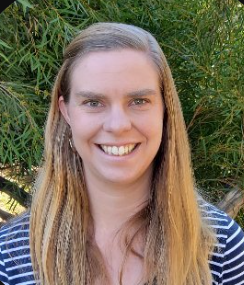
The landscape of cancer care is undergoing continuous improvement. However, the journey from early detection to diagnosis, treatment, and beyond is growing more intricate.
A cancer diagnosis is a life-changing event, and disparities based on race, ethnicity, and socioeconomic status lead to unmet needs along the way. These inconsistencies span the cancer care continuum and may be attributed to inequitable access to and engagement with healthcare services.
The GINO (Global Implementation of Navigation in Oncology) research project’s principal investigators, Prof Raymond Chan and Dr Fiona Crawford-Williams from the Caring Futures Institute, along with Dr Margaret Fitch, Head of Oncology Nursing at the Odette Cancer Centre (Sunnybrook Health Science Centre, Toronto, Canada) are working together with Caring Futures Institute researchers Dr Imogen Ramsey and Dr Carla Thamm, in partnership with the Multinational Association of Supportive Care in Cancer (MASCC). Generously funded by Novartis. This project aims to eliminate obstacles and promote fair cancer care, globally.

Dr Crawford-Williams says the healthcare system is becoming increasingly convoluted, especially for those facing multiple barriers.
“There is growing recognition that navigating the health care system as a person with cancer or an informal caregiver can be an overwhelming experience…. This challenge is further compounded by structural, cultural and personal obstacles, including limited knowledge, financial constraints, lack of insurance, geographic distance from care providers, and shortages of essential cancer care resources.”
While current pathways offer guidance for cancer patients, if they are to receive the best possible care, additional assistance and ongoing support is required to navigate complex healthcare systems.
To address these challenges, patient navigation has been identified as a strategic solution. This approach tackles both individual and system barriers, working to improve the care experience. This method improves access to timely treatments, streamlines appointments for those who are most vulnerable. Patient navigation acts as a valuable bridge, ensuring equitable and timely care for patients in need.
“The project aims to ensure that evidence-based, quality patient navigation interventions are being implemented into practice to reduce obstacles in accessing cancer care and improve patient outcomes.” Dr Crawford-Williams says.
The GINO project builds upon a recent study of patient navigation across the cancer continuum conducted by the Caring Futures Institute Cancer Survivorship team, led by Professor Raymond Chan, Dr Nicolas Hart, Dr Fiona Crawford-Williams and Professor Julie Ratcliffe, in collaboration with Cancer Australia. This recent study, published in the high impact CA: A Cancer Journal for Clinicians, not only confirmed the effectiveness and cost-effectiveness of cancer navigation programs but also identified gaps in the scientific literature in need of further research.
The GINO project, which commenced in July 2023, is expected to run for three years and has three phases. The first phase is to develop a cancer patient navigation framework through a Delphi consensus study. Once the framework is developed, a team of experts from MASCC will be tasked with establishing a global Position Statement for Patient Navigation in Cancer.
During the second phase, the expert group will develop a core set of quality and efficiency indicators and then trial them in existing cancer navigation programs. During phase three the group will create an adaptable implementation guideline suitable for diverse healthcare settings. Additionally, a global community of practice will be set up and led by members of the expert working group and project team.
“A community of practice will be launched to collate and share patient navigation resources and tools, to monitor and assist in local adaptation of patient navigation programs, and to assist with sustainable implementation.” Dr Crawford-Williams says.
Dr Crawford-Williams highlighted the uniqueness of the project.
“This initiative collaborates closely with global experts to translate research into practice in different countries. It uses existing worldwide programs to adapt patient navigation to local contexts.”
“Furthermore, the global community of practice will ensure that quality evidence is available and a plan to support sustainability beyond the project period will be explored and co-developed with its members.”
The GINO research project acts as a catalyst for change that fosters a global community dedicated to building better lives, better communities, better care, and better systems.

